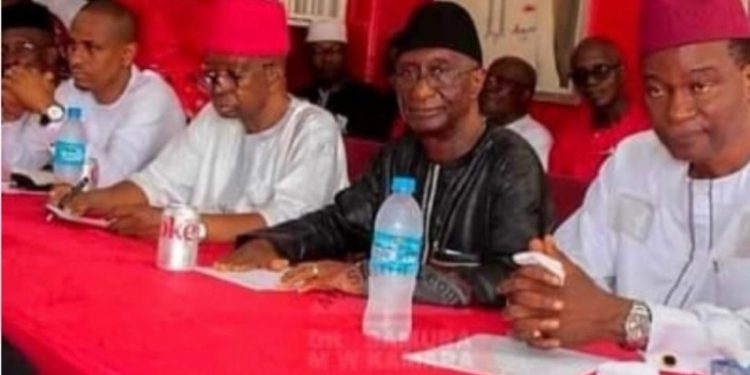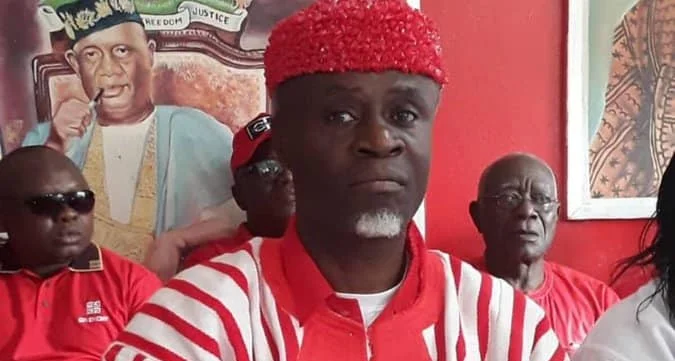By Hassan Osman Kargbo
Sierra Leone’s political landscape has long been dominated by two major parties: the Sierra Leone People’s Party (SLPP) and the All People’s Congress (APC). Since gaining independence in 1961, these two political giants have alternated in power, often marked by significant shifts in governance and public sentiment. As we approach the 2028 elections, the question looms larger than ever: will the APC be relegated to the opposition once again? People have been asking this question.
One of the reasons to this question is the Fragmentation Within the APC party. One of the most pressing challenges facing the APC is internal fragmentation. As the party prepares for its flagerbearer primaries, a plethora of candidates have expressed interest in the Presidential nomination, raising concerns about the party’s unity and ability to present a cohesive front to the electorate.
Historically, successful parties consolidate around a single candidate to maximize their chances of winning. The current scenario within the APC, with multiple factions vying for power, could lead to a divided vote in the primaries, which may ultimately benefit the incumbent SLPP come 2028 election.
Political history in Sierra Leone has shown that fragmentation can severely damage a party’s election prospects. The APC would do well to remember the lessons learnt from the previous elections when disunity hampered their ability to mount an effective challenge against the SLPP. If they fail to rally around a single, unifying candidate, the APC risks alienating its own base, leading to voter apathy and disengagement during a period when they should be energizing their supporters.
In addition, the shadow of election Integrity could also be a reason the APC could continue in opposition. The 2023 elections were marred by accusations of electoral manipulation and unfair practices, which many cited as contributing factors to the SLPP’s continuation in power. Such sentiments have left a sour taste in the mouths of many citizens who anticipated a fair electoral process. If the APC intends to capitalize on these grievances, they must first demonstrate that they have the solutions to improve electoral integrity and transparency in Sierra Leone. A failure to address these issues effectively, or to propose credible reform measures, could entrench SLPP’s hold on power and further disenfranchise voters.
To compete successfully in 2028, the APC must focus on gaining public trust by advocating for electoral reforms that prioritize transparency and integrity. If voters perceive the APC as merely a party seeking to regain power without addressing past grievances, they may see little reason to support them at the polls.
Also, The Need for a Clear Policy Platform is vital. Another challenge for the APC is the lack of a compelling policy platform that resonates with the electorate. Many citizens are acutely aware of the economic hardships that Sierra Leone has faced, including rising unemployment and declining living standards. To attract voters, the APC must present a viable and realistic agenda that address these pressing issues.
If, during their campaigning, the APC fails to articulate a strategic vision for economic recovery, social development, and good governance, they risk being seen as a mere alternative to the SLPP rather than a transformative option. Voters are likely to support the party that best conveys a clear understanding of the challenges facing the nation and offers innovative solutions.
Engaging the Youth Demographics could be also important to gain momentum come 2028. Sierra Leone boasts a sizable youth population, and their engagement is critical to any political party wishing to make a meaningful impact in the electoral arena. If the APC continues in its traditional mold of appealing primarily to its core constituents in the North and West without actively engaging younger voters, it could find itself at a significant disadvantage in the upcoming elections.
To ensure a robust electoral strategy, the APC must cultivate connections with the youth demographics by incorporating their perspectives into its platform. Whether through grassroots movements, social media outreach, or engaging young leaders, the party must demonstrate that it values the input and aspirations of younger generations. Failure to do so may result in alienation of a sizeable voting bloc that is critical to electoral success.
The APC stands at a crossroads as it prepares for the 2028 elections. Faced with internal fragmentation, questions of election integrity, the necessity of a compelling policy platform, and the crucial task of engaging the youth demographics, the party must navigate a complex political landscape.
If the APC can unify its efforts, advocate for election reforms, present a robust economic agenda, and connect meaningfully with younger voters, it may very well reclaim its position as a dominant force in Sierra Leonean politics. However, if the party remains disjointed and fails to adequately prepare for the upcoming electoral battle, it may find itself remaining in opposition once again, marking a significant and enduring shift in Sierra Leone’s political governance.
The choices made today will echo through the corridors of power in the years to come, underscoring the importance of unity, strategy, and dynamic engagement in the quest for leadership.













